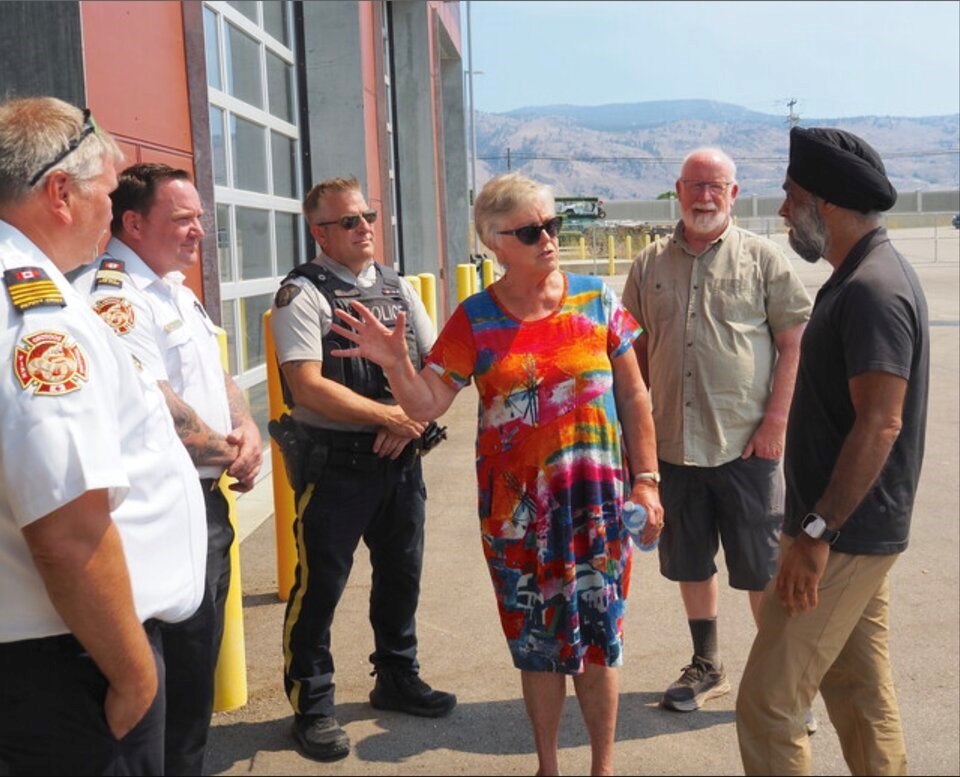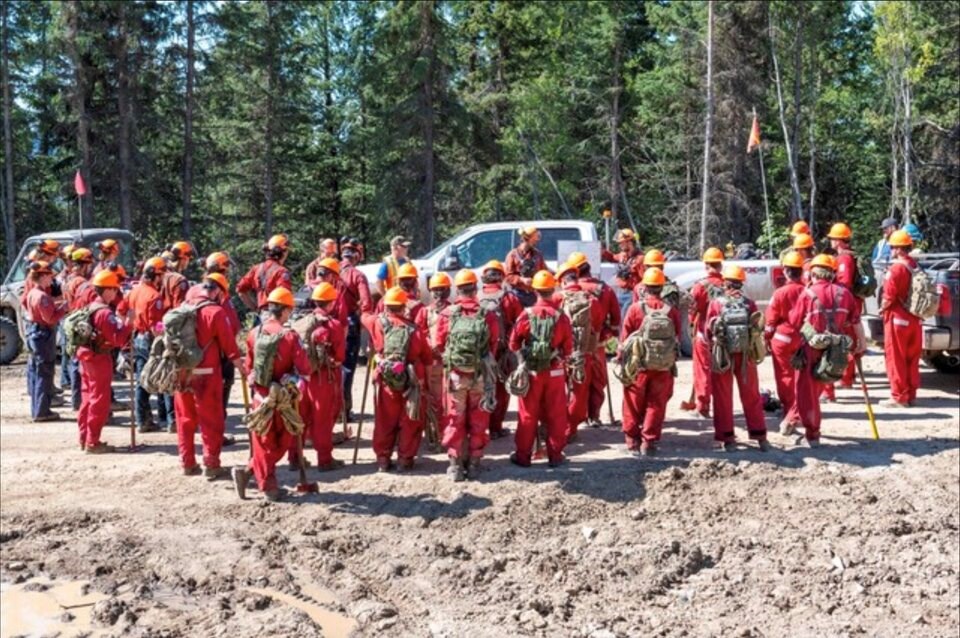A national wildfire fighting force and a squadron of water bombers is what MP Richard Cannings would like to see created in Canada as the country records its worst wildfire season on record.
Cannings, a biologist by training and the South Okanagan-West Kootenay Member of Parliament, was speaking on the sidelines of a visit by the Federal Minister of Emergency Preparedness, Harjit Sajjan to Osoyoos last week.
“It would be a great idea,” Cannings said of the nascent idea of building a national force.
“If you look at how many crews we brought in from all over the world, and this is only going to become worse on average every year, and I think it would be a very good idea to have some national fire fighting force.”
Cannings suggests a civilian force of some 400-500 people consisting of crews of 20-25. “This is what experts have been suggesting and I think it’s a good idea,” he said.
This contingent could then be trained up specifically, he said noting that currently the Canadian Armed Forces are relied upon in difficult situations but they’re not specifically trained for firefighting.
“This crew could work year-round both in fighting fires and mitigating situations around communities for fires and I think we should have a national squadron of water bombers.”
He noted that as Canada is a manufacturer of water bombers it’s logical we should have a squadron that we can move across the country as need be.
Deploying this national fire fighting force to areas in the spring would also ensure they’re in place when things happen.

He held out high praise for the BC Wildfire Service saying “they do a really good job but for many years they’ve been overwhelmed.” He cited particularly bad wildfire seasons in 2015, 2017, 2018 and 2021.
A number of other countries have created national forces, including Australia which has suffered major wildfires in recent years. “I think we should look at all those models from around the world,” he said.
“I think they [Australia] are ahead of us in this because they’ve gotten hotter and dryer faster than we have.”
He added that there are fires almost year-round now in Canada, especially in places like Alberta, where things dry out quickly in the spring.
“We’ve had some real tragedies that we can learn from,” he said in reference to Fort McMurray and Lytton as just two examples.
“There are some real well-known wildfire experts, here in Canada,” he noted, and many of them have been making some “pretty good suggestions and that’s where I’m trying to take those and present to the government.
“Let’s get something going here because it’s clear from the start of this - we have Nova Scotia burning and all the fires here in B.C. even on the coast and that’s the second year we’ve had fires on the coast,” he said.
There are things he believes the country should be doing already on this issue, including “spending more money on the adaptation piece, and FireSmarting communities."
Thinning out trees and minimizing fuel on forest floors are also important, Cannings said, acknowledging they require “significantly more money than is currently being made available.”
He noted there is a fund set up by the provincial government that was managed by the Union of BC Municipalities and run by First Nations and that’s been doing great work but everybody agrees it’s just not enough money to actually do the work.
The federal government has put some money in, he noted, “but it’s just clearly not enough.”




